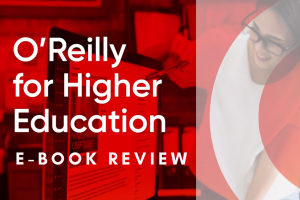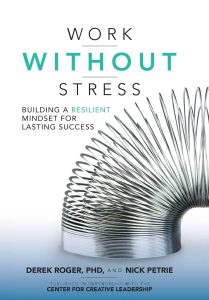 Vanderbilt University Library is excited to share how our subscription to O’Reilly for Higher Education is being used by Vanderbilt students to learn new skills and software programs virtually. This is the second article in a three-part series of student-authored articles. Jonas Accam, an undergraduate student (’23) majoring in pre-medical studies, discusses his experience using O’Reilly for Higher Education to learn more about stress management techniques.
Vanderbilt University Library is excited to share how our subscription to O’Reilly for Higher Education is being used by Vanderbilt students to learn new skills and software programs virtually. This is the second article in a three-part series of student-authored articles. Jonas Accam, an undergraduate student (’23) majoring in pre-medical studies, discusses his experience using O’Reilly for Higher Education to learn more about stress management techniques.
It’s become commonplace to hear people complain about how stressed they are. As such, there has been much research to understand how stress affects our health and our way of life. Many stress research studies find a decrease in the productivity of the individual experiencing stress symptoms.

For this reason, many people put enormous amount of resources in managing their stress in order to stay productive in their workplaces and classrooms and also to maintain good health since there are a number of illnesses that are believed to be stressed related. But how does one really manage their stress?
A simple solution is provided in Derek Roger and Nick Petrie’s Work Without Stress: Building A Resilient Mindset for Lasting Success. This book was freely available to me as an electronic book through the Vanderbilt Library’s subscription to O’Reilly for Higher Education.
The book provides simple everyday practices that can help one reduce stress and improve productivity. A unique feature of this book is that it not only provides the solution to control one’s stress, but it also explains how to avoid stress. By demonstrating how everyday practices, like ruminating and day sleeping cause stress in one’s life, this book enables its readers to clearly identify lifestyle practices that cause stress, which then enables them to adopt new lifestyles to help prevent stress.
 I chose this book because I wanted to learn new ways to control my stress. As a student in a rigorous study program, I spend long hours working, which makes me stressed. I have read a ton of books on stress management and they all seem to provide a quick fix to my problem without necessarily educating me on why I am stressed all the time. But reading this book made me realize simple everyday practices like ruminating about my performance on a test or thinking of the future are the source of my stress. In addition, it provided easy steps I could take to help stop those practices. I thought this approach was really innovative because it is very important to know the underlying causes of stress.
I chose this book because I wanted to learn new ways to control my stress. As a student in a rigorous study program, I spend long hours working, which makes me stressed. I have read a ton of books on stress management and they all seem to provide a quick fix to my problem without necessarily educating me on why I am stressed all the time. But reading this book made me realize simple everyday practices like ruminating about my performance on a test or thinking of the future are the source of my stress. In addition, it provided easy steps I could take to help stop those practices. I thought this approach was really innovative because it is very important to know the underlying causes of stress.
Another feature of this book I really liked was the way it was written. Stress management books always use research data and terminologies to make their point and demonstrate credibility. This book, however, follows a different approach. It uses layman’s language in dissecting scientific information and explains concepts using case studies and stories most readers will have experienced. This method made it very easy and interesting to read since I was able to follow and grasp everything the book was presenting.
The book is divided into seven main chapters:
Chapter 1: A New Way to Think about Stress and Resilience
Chapter 2: Waking Up
Chapter 3: Controlling Attention
Chapter 4: Becoming Detached and Letting Go
Chapter 5: Developing a Resilient Personality
Chapter 6: Resilient Communication And Leading Change
Chapter 7: Conclusion: Pulling it All Together
Appendix: The Resilience Research Program
After reading the book, I decided to experiment on the stress management practices and habits the book suggested and I am loving it. Not only do I feel refreshed most of the time of the day, but I am able to pay attention and be productive for long periods of time.